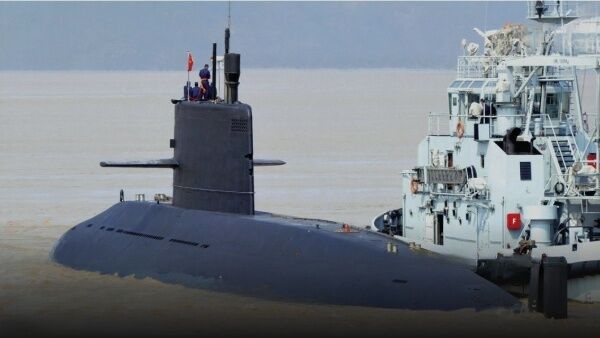Thailand strikes new submarine deal with China

Thailand and China finally wrapped up negotiations on the Royal Thai Navy’s (RTN) much-anticipated purchase of a Chinese-made S26T Yuan-class submarine.
RTN Commander-in-Chief Admiral Adoong Pan-iam announced today that the agreement is now awaiting the final nod from the Thai Cabinet.
“If approved, we will promptly amend the deal with the Chinese manufacturer.”
Admiral Adoong expects the submarine to be delivered in three years. This advanced vessel will significantly enhance the navy’s capabilities, as it will be the first of its kind in Southeast Asia, featuring cutting-edge weaponry.
The submarine deal has faced numerous delays due to the RTN’s initial insistence on German-made diesel engines, a requirement detailed in the original procurement contract. However, Germany has refused to supply these engines to China, adhering to the European Union’s boycott of the country.
Faced with this roadblock, the RTN has decided to abandon its demand for German engines and will instead use the Chinese-made CHD620 diesel engine, reported Thai PBS World.
Admiral Adoong is confident that this acquisition will make the Thai public proud.
“This is a significant milestone for the RTN. We are acquiring our first submarine, and it may be just the beginning—we could see one or two more in the future.”
ORIGINAL STORY: Navigating new depths: RTN seals deal for Chinese submarine
The Royal Thai Navy (RTN) confirmed its decision to proceed with the purchase of a 13.5-billion-baht submarine from China, following successful negotiations earlier this week. This announcement came from an RTN source.
General Somsak Rungsita, adviser to Defence Minister Sutin Klungsang and chairman of the Defence Ministry panel dealing with the submarine issue, held discussions with a Chinese delegation led by Colonel Shi Xionning, a deputy director at China’s Bureau of Military Equipment and Technical Cooperation (BOMETEC). These talks took place on Tuesday, May 14.
The subsequent day saw the Chinese delegation meeting with Sutin to further discuss the matter, according to the source.
Both parties have agreed to the construction of an S26T Yuan-class submarine through a government-to-government procurement deal.
“The problem has been solved because of good relations between the two countries.”
The agreement includes the installation of a CHD620 electric generator, replacing the initially planned German MTU396 engine.
“The CHD620 is, in fact, a submarine electric generator. It is not meant to serve as an engine.”
The RTN previously sent a working panel to observe the testing of the CHD620 generator in China. Despite the generator not having been used before, it has received an industrial certificate from the Chinese Defence Ministry and a certificate of approval from Lloyd’s Register, an international marine shipping classification society based in London.
Pakistan, which faced a similar issue, also permitted China to replace a German-made engine with the CHD620 in a submarine purchased from China.
Contract extension request
The Defence Ministry plans to request Cabinet approval this month to extend the contract by an additional 1,217 days, following the original deadline that ended on December 30 last year.
The RTN also sought an interpretation from the Council of State concerning an amendment to the contract to switch from a German-made engine to a Chinese-made electric generator. The RTN remains confident in its authority to amend the contract.
Delays in resolving the problem were attributed to China merging agencies responsible for selling weapons to foreign countries into BOMETEC.
Instead of paying 200 million baht in compensation for the delayed submarine construction, China will provide the RTN with a submarine training simulator and spare parts, valued at approximately 200 million baht also.
China Shipbuilding & Offshore International Co (CSOC) was contracted to build the submarine for 13.5 billion baht under a government-to-government deal with Thailand. Construction was reportedly halfway completed but faced delays due to the pandemic and the engine issue, reported Bangkok Post.
The original deal, signed in May 2017, specified a German-made diesel engine. However, Germany refused to sell the engine to China due to its classification as a military/defence item, adhering to the EU’s arms embargo on China imposed in 1989. Consequently, Beijing proposed the use of a Chinese-made engine instead.
Latest Thailand News
Follow The Thaiger on Google News:


























